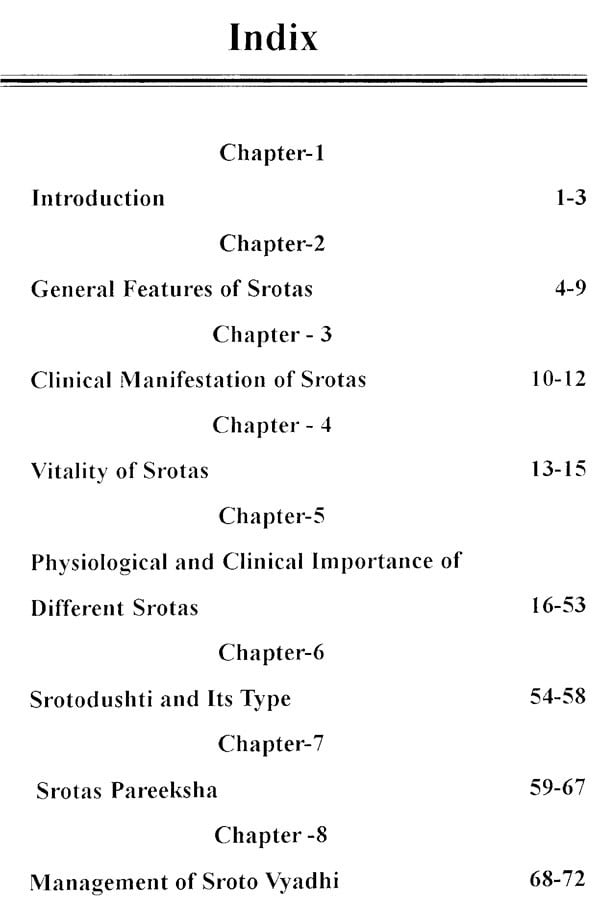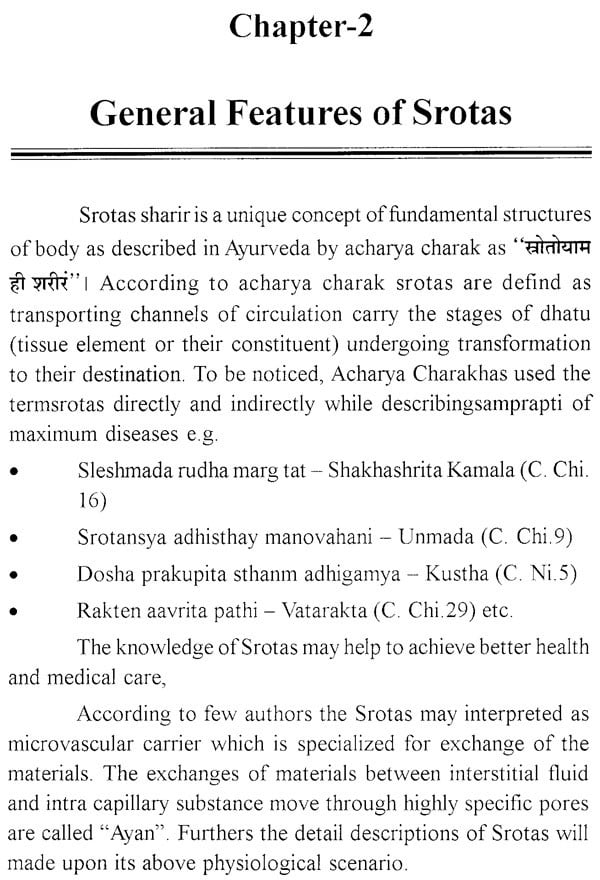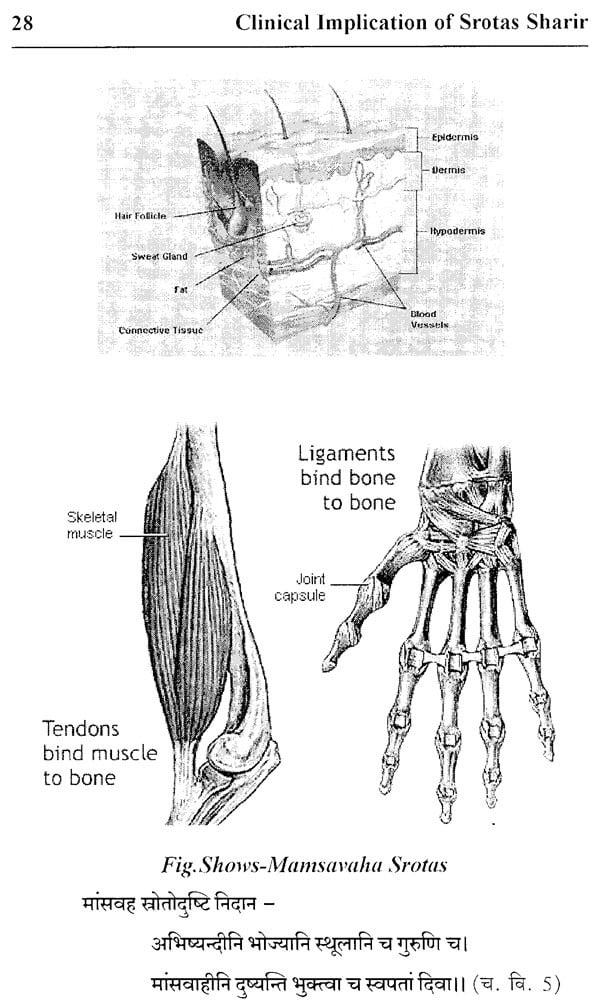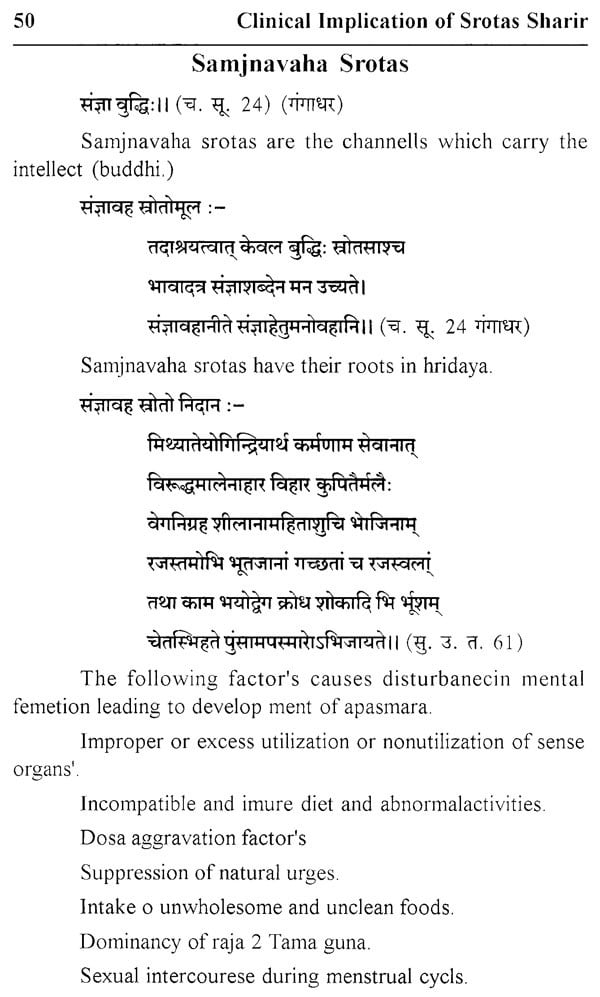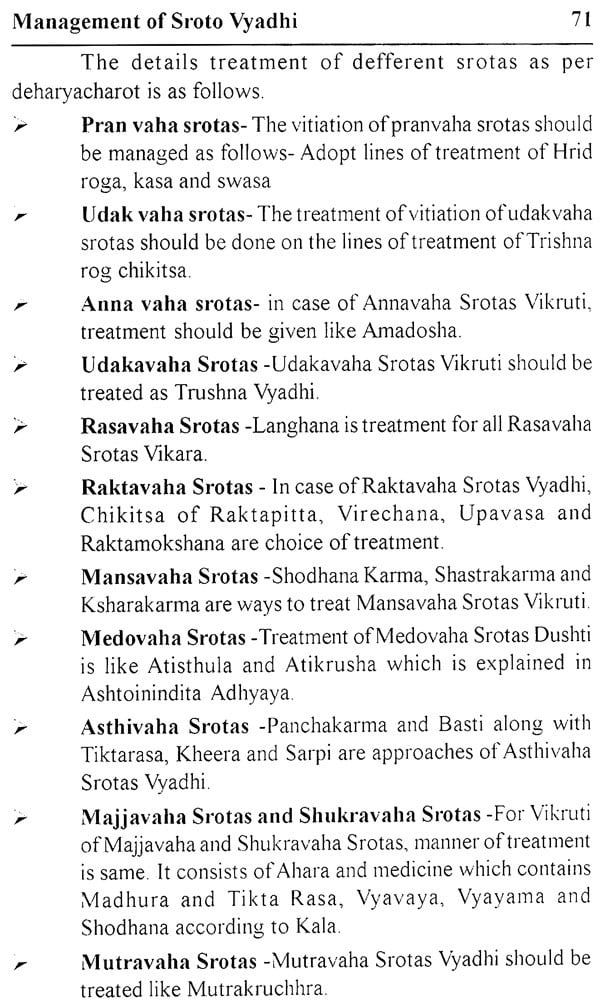
Clinical Implication Of Srotas Sharir
Book Specification
| Item Code: | NCZ045 |
| Author: | Pankaj Kumar Rajvanshi and Nitin Pandey |
| Publisher: | Ayurved Sanskrit Hindi Pustak Bhandar, Jaipur |
| Language: | Sanskrit and English |
| Edition: | 2018 |
| ISBN: | 9789383452996 |
| Pages: | 72 (Throughout B/W Illustrations) |
| Cover: | PAPERBACK |
| Other Details | 8.50 X 5.50 inches |
| Weight | 120 gm |
Book Description
He completed his graduation from state ayurvedic college and hospital Bareilly and post-graduation from state ayurvedic college and hospital lucknow.
The author has published various articles in international and national journals and presented many papers in national and international seminars and conferences.
Dr. Nitin Pandey is presently working as Professor in kaya chikitsa department of Himalayiya Ayurvedic Medical College and Hospital Dehradun.
He completed his UG and PG from faculty of Ayurveda Banaras Hindu University. The author has published many articles and presented papers in international and national journals and seminars.
This book is comprised of essential basic knowledge of srotas sharir and its clinical approach, which will be definitely helpful to the Ayurveda students as well as ayurvedic physicians.
Srotas are the channels where tridosha actively perform their work so doshas and srotas are the chief component of pathogenesis of any disease. Thus the clearance and obstruction of srotas is the condition of health and disease accordingly hence in the maintenance of health and vice-versa i.e. causation of disease, so the importance of srotas is very obvious.
The patency of Srotas is very essential to maintain physiology and health of person. This physiological intactness leads to health. The whole some of Srotas can be grouped in to physio-anatomical units, which perform specified function in body, and anatomically identifiable based on their moolaa.
Sushruta describes Srotas as structures which originate from vacant spaces (hollow organs), spread throughout the body and purvey materials or elements. They are apart from sira (vein) and dhamani (artery) . View of Charaka slightly differs from that of Sushruta. Charaka defines Srotas as transporting channels of dhatus (tissue elements) undergoing transformation (intermediary metabolite) . The transformation is adopting the form of successive element by leaving the same of preceding one. This transformation of element occurs with the aid of specific agni (digestive power specific to eact element) located at the base or root of each Srotas.
Book's Contents and Sample Pages
